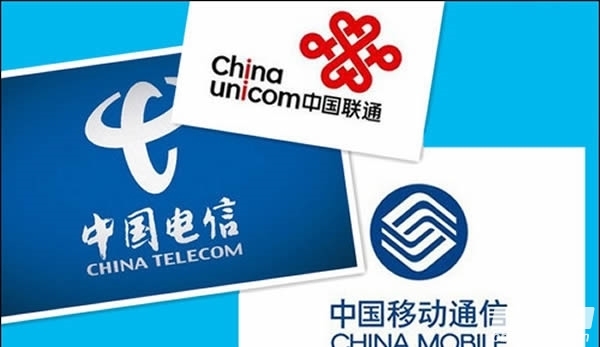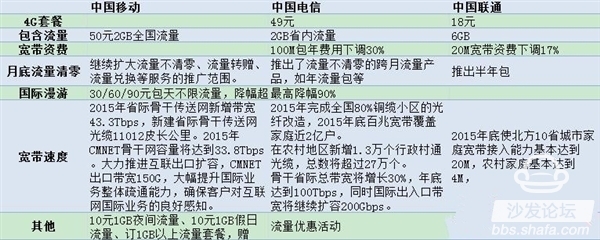It has been one month since the three major operators announced the "speed up and fee down" plan on the 15th of last month. However, since this month, some of the three major operators have not yet completed the "accelerate and reduce fees" measures, and there is no specific timetable for landing.
Some industry analysts pointed out that the three major operators "improve speed and reduce fees" to implement all of a sudden is not realistic, and its main consideration is the impact of income.

Three major operators "speed up and down fee" part of the measures without landing timetable
On May 15, the three major operators announced the "speed increase and fee reduction" plan at the same time. The plan has been published for one month. How about the implementation? The reporter learned that many of the measures proposed by the three major operators last month did not start until July; there are still some measures that have not yet been completed and there is no specific timetable for landing.
China Mobile’s “Speed-up and Price Reduction†program shows that “the purchase of 1GB of donated 1GB of nighttime traffic†and “measures to reduce roaming traffic charges for international and Hong Kong, Macau, and Taiwan†were not implemented until the end of June to July. “10 yuan 1GB holiday traffic package†Started on June 20th during the Dragon Boat Festival.
China Telecom once stated that it expects to reduce international roaming charges again in June this year, with a 90% reduction in some countries and regions. Now that half of June has passed, the news of reducing international roaming charges has not yet been reported.
In addition to some speed-up and price-reduction measures that were not started in July, the reporter also noticed that there are no timetables for the three major operators to "accelerate and reduce fees".
China Mobile has stated in its plan to “speed up and reduce fees†last month that it has fully promoted “out-of-home Security services†and the packaged foreign investment fees have dropped to 0.06-0.1 yuan/MB. However, China Mobile’s customer service stated that “we have not heard of price cuts.†Taking Beijing as an example, the out-of-package tariff is still 0.29 yuan/MB.
For the out-of-package traffic tariff, China Unicom stated in last month's "speed increase and fee reduction" plan that the unit price of out-of-traffic 4G packages has dropped to 60/G, which is a drop of 70% to 80% compared with 3G. However, calling China Unicom customer service learned that the current outflow of 4G packages is 0.3 yuan/MB, and the unit price per G exceeds 300 yuan.
China Unicom also showed in its plan last month that it will launch a half-packet promotion campaign for intra-city traffic of as low as RMB 10 per pack for 1.5GB. Traffic will not be cleared for months and will be valid for half a year. However, several calls to China Unicom's customer service have received a response saying that "there is no such event and no notice has been received."
Broadband: 4M and 10M Price
In terms of broadband, China Unicom stated that the 20M fixed broadband tariff in Beijing will be reduced from 1780 yuan/year to 1480 yuan/year, and 50M and 100M broadband tariffs will also have corresponding price cuts. However, in fact, this is only targeted at the suburbs of Beijing. At the same rate, broadband charges in Beijing are generally 200 yuan more than in the suburbs.
This situation is not just a China Unicom one, China Telecom also has the broadband "urban than suburban expensive" issue. Take Beijing as an example. Under the same rate, China Telecom’s broadband fare is 200 yuan more than the suburbs in urban areas. "I don't know exactly why," said China Telecom's customer service.
In addition, the reporter also learned that the price of China Unicom's broadband 4M is the same as that of 10M; China Telecom's broadband 2M rate is the same as 12M. "At the same price, wouldn't the user choose a high rate, and who would choose a low rate?" asked a reporter from the China New Network IT Channel.
"It is not up to the user to decide, but whether the user's residential area is connected to the fiber. Fiber-optic residential tenants can choose the corresponding high-speed broadband, and if not, they can only choose low-rate, the price is the same." China Unicom and China Telecom customer service said so.
According to the latest data from the Ministry of Industry and Information Technology, broadband users with an access rate of 8Mbps or less in China account for more than 50%. This means that a large number of users spend 10M broadband money, but they use 4M broadband.
Analysis: Quick and comprehensive "speed increase and decrease fee" or affect the income of the three major operators
The State Council Executive Meeting on May 13 proposed five measures: “The city’s broadband is free to speed up more than 40%â€; the Ministry of Industry and Information Technology also proposed 14 measures and 2017 development targets on May 15. Under such pressure, the three major operators announced the "speed increase and fee reduction" plan on May 15, but why did some of the measures fail?
Ma Jihua, a telecommunications analyst, said in an interview with China News Service that the three major operators' "speeding up and reducing fees" should be a long-term process. It is not realistic to implement them all at once, because the operators still have a lot of assessments (including income). "If speed and cost reductions are implemented quickly and fully, these metrics will be difficult to achieve."

Securities Daily quoted industry insiders on the 11th saying that the reduction of mobile phone traffic may have a certain impact on the revenues of the three major operators. Therefore, the execution time can be delayed. It is understood that in the first quarter of this year, the three major operators earned 350 million yuan a day, and last year, the three major operators earned 380 million yuan a day. This means that the profitability of the three major operators is declining.
"If speeding up and reducing fees are implemented quickly and fully, the impact on the revenues of the three major operators should still be significant." Ma Jihua said, mainly because the current user growth rate has slowed down, and the income loss caused by speed increase and fee reduction can hardly make users more high-speed. The increase in dividends will offset. According to the latest data released by the three major operators, in April, the number of subscribers to the three major operators was declining. China Mobile also experienced a sharp drop in the number of subscribers from the same period last year.
This content is copyrighted exclusively by SofaNet. Welcome manufacturers to further exchanges and cooperation with us to create more in-depth product reports.

Smart TV box recommended to install sofa butler, download address: http://app.shafa.com/
Sofa Net is an Internet technology company specializing in smart TVs and boxes. It owns popular products such as sofa butlers, sofa tables, and sofa forums. It has been committed to providing high quality application resources for smart TV and TV box users and active community exchanges. And authoritative evaluation of smart TV products.
Aluminum Alloy Die Casting Blank
Aluminum Alloy Die Casting Blank,Pressure Die Cast,Die Casting Products Alloy,Molded Precision Die Parts Cast
Dongguan Metalwork Technology Co., LTD. , http://www.diecast-pro.com
